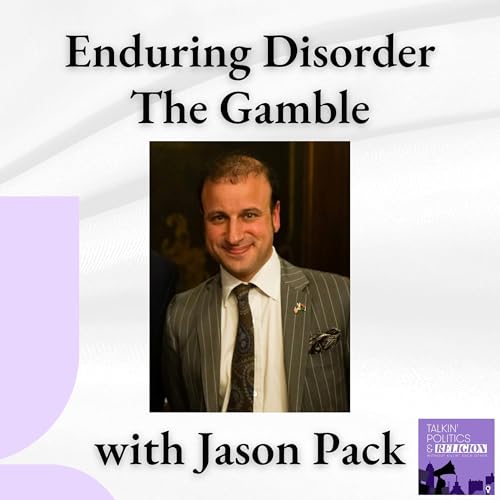How do societies decide which stories to tell about themselves and which truths to soften or ignore?
In this episode, historian, communications strategist, and Freedom Over Fascism host Dr. Stephanie Wilson joins Corey Nathan to discuss collective memory, historical narrative, and the language shaping American civic life right now.
Drawing on her academic work on Jerusalem, her experience in political communications, and her current focus on democracy and messaging, Stephanie explores how myths take hold, why people instinctively place themselves on the “right side” of history, and what happens when cruelty and dehumanization become normalized tools of power. Along the way, the conversation wrestles with Israel and Palestine, fascism and language, media failure, activism, and what it actually takes to engage across deep disagreement without abandoning moral clarity.
Calls to Action ✅ If this episode resonates, consider sharing it with someone who might need a reminder that disagreement doesn’t have to mean dehumanization.
✅ Check out our Substack: coreysnathan.substack.com
✅ Leave a review on Apple Podcasts, Spotify, or wherever you listen: ratethispodcast.com/goodfaithpolitics
✅ Subscribe to Talkin' Politics & Religion Without Killin' Each Other on your favorite podcast platform.
✅ Watch the full conversation and subscribe on YouTube: youtube.com/@politicsandreligion
Key Takeaways • Collective memory often says more about who is telling the story than about the past itself • People naturally imagine themselves as heroes or resisters rather than beneficiaries or bystanders • Museums, monuments, and national myths are political acts, whether acknowledged or not • Fascism is better understood through concrete behaviors than abstract labels • Language shapes what people are willing to see, justify, or ignore • Values based framing opens more space for dialogue than policy arguments alone • Curiosity and empathy are necessary skills for sustaining democracy, even when lines must be drawn • Engagement across difference does not require moral surrender or tolerance of cruelty
About the Guest Dr. Stephanie Wilson is a historian, activist, and communications expert. She is the creator and host of Freedom Over Fascism, where she examines democracy, messaging, media ecosystems, and civic engagement through conversations with journalists, scholars, and organizers. Her academic work focuses on historical memory, museums, and narrative power, with particular attention to Jerusalem and contested histories.
Links and Resources • Freedom Over Fascism on Substack: www.freedomoverfascism.us • Freedom Over Fascism on YouTube: www.youtube.com/@FreedomOverFascismPod
Connect on Social Media Corey is @coreysnathan on all the socials...
- Substack
- LinkedIn
- Facebook
- Instagram
- Twitter
- Threads
- Bluesky
- TikTok
Thanks to Our Sponsors -
Pew Research Center: pewresearch.org
-
The Village Square: villagesquare.us
-
Meza Wealth Management: mezawealth.com
Proud members of The Democracy Group
Clarity, charity, and conviction can live in the same room.
 1 h y 10 m
1 h y 10 m Jan 30 202615 m
Jan 30 202615 m 1 h y 15 m
1 h y 15 m Jan 23 202612 m
Jan 23 202612 m Jan 20 20261 h y 22 m
Jan 20 20261 h y 22 m 49 m
49 m Jan 13 20261 h y 6 m
Jan 13 20261 h y 6 m 1 h y 9 m
1 h y 9 m
